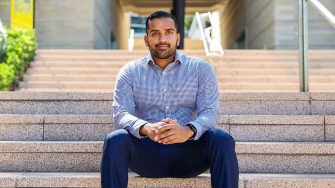From science to solutions engineering: How Manish took his UNSW degree to places he never imagined
Helping businesses improve their productivity and customer experience is a long way from studying Nanomedicine in a lab. But it’s a career move Manish Sriram, Senior Solution Engineer APAC at Intercom is happy he made.

